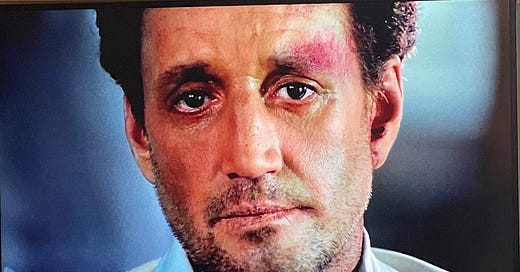Good morning,
Last week I wrote about the rapid changes happening on Google search results pages. Welp, looks like the changes keep coming.
On Tuesday, Google announced that AI Overviews will be rolling out to all U.S.-based searchers starting next week. This will effectively push standard linked search results out of the initial display in major search categories,
This week, The Washington Post predicted that publishers will be bracing for carnage. That’s been the case and the prediction for a while now. Stay tuned as the panic slowly begins to build this year.
But that’s not the story I want to focus on today.
This week, I want to talk about a story from the Hollywood Reporter that looked at YouTube’s growth as a streaming service in people’s homes and how they are developing programming to match these new viewing habits.
Per the Hollywood Reporter, YouTube “is marking one year as the most-watched streaming platform on Nielsen’s Gauge chart, which tracks what consumers are watching on TV.” And, according to that Nielsen data, “in the U.S. alone, 150 million people are watching [YouTube] on TV sets each month, totaling 1 billion hours daily.”
Because of this, YouTube is working with creators on its platform to program what are effectively TV series. And, as one of these creators says in the Hollywood Reporter piece, “We’re not making user generated content. We’re making independent television.”
Earlier this year, YouTube CEO Neal Mohan sad, “Viewers want everything in one place, from a live sports game to the BBC to Khan Academy and NikkieTutorials. And they’re watching YouTube the way we used to sit down together for traditional TV shows – on the biggest screen in the home with friends and family.”
I’ve experienced this first hand. Last year, I lived with my fiance’s parents for about seven months. For several years, one of my fiance’s mother’s favorite post-dinner routines has been firing up Roku and popping between YouTube videos: SNL clips, fitness tips, home tours, you name it. So as I’ve seen stories and stats about evolving YouTube viewer habits it didn’t surprise me.
And as the viewing consumption of YouTube videos evolves, so will its ad experience. This presents yet another hurdle for website based media companies. Why advertise on a website, when you can advertise on an ad-supported tier of a streaming service—or on a YouTube video where people are spending a lot of their time?
As one of the YouTube creators quoted in the Hollywood Reporter piece says, “What I think is really cool about this is when you open Apple TV or Roku or whatever, you see Disney+, you see Hulu, you see Netflix and YouTube, the app is right there. We’re right next to all of the major streaming services.”
YouTube, despite how pervasive it has been for almost twenty years, may somehow still be a sleeping giant in the media world.
Two Good Google Quotes
“People’s time is valuable, right? They deal with hard things. If you have an opportunity with technology to help people get answers to their questions, to take more of the work out of it, why wouldn’t we want to go after that?”
This one is from Liz Reid, the head of search at Google, in a piece in Wired titled “The End of Search as We Know It.”
“It remains to be seen how much this matters to the vast majority of people whose livelihoods do not depend directly on web traffic. I suspect billions of people will be happy to receive their answers to complicated queries directly on the search results page, uninterested in where the information comes from, so long as it’s accurate enough.
But to everyone who depended even a little bit on web search to have their business discovered, or their blog post read, or their journalism funded, the arrival of AI search bodes ill for the future. Google will now do the Googling for you, and everyone who benefited from humans doing the Googling will very soon need to come up with a Plan B.”
This one is from Casey Newton in his piece analyzing Google’s announcement.
More Links to Navigate the Carnage
Axios’s Sara Fischer wrote about the flow of advertising dollars to streamers.
404 Media looked at the current state of Facebook and deemed it the “zombie internet.”
Brian Morrissey wrote about the continued existence of brands like Sports Illustrated, Deadspin, and Vice after they have been hollowed out and used as assets in licensing and market deals.
Matt Belloni and Lucas Shaw talked about the Disney+, Hulu, Max bundle and what it means.
Sara Fischer also covered The Athletic staff contemplating a union. Interesting note in the story: The Athletic URLs are now all New York Times URLs.
What does it mean that the CRO of my company is stepping down?




This make a lot of sense. I'm watching more YouTube than ever and much of the time I'm casting it to my Roku TV. The biggest trend I'm noticing about myself? I'm watching comedian podcasts on YouTube. I remember back in the day not being able to see myself watching videos on my phone. How wrong I was! Great post, Matt. Thanks for doing what you do.